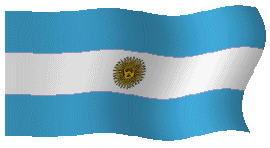
B"H
Jewish  Tours
Tours
 Buenos Aires, Argentina
Buenos Aires, Argentina
The first organized Jewish community in Brazil was established in Recife, Pernambuco, in the northeast, during a brief period of Dutch colonial occupation in the 17th century, which permitted religious freedom, and legally defended Jews and New Christians from the restrictions imposed by Portugal. The estimates of the Jewish population at Recife vary considerably. According to Wiznizter, it reached 1,450 members in 1645. Egon and Frieda Wolff 's research found around 350 Jews.
From the end of the 16th century, Amsterdam became an important Jewish religious, cultural, and economic center, formed mainly by New Christians of Portuguese origin who returned to Judaism. When the West India Company, aided by the Dutch government, equipped an expedition to Brazil, some Dutch Jews joined the expedition. In May 1624 two important forts in Bahia were captured by the Dutch; but a large Portuguese and Spanish expeditionary force arrived shortly afterwards, and two months later, the Dutch had to surrender (May 1625). The West India Company soon prepared another expedition, this time to Pernambuco. The States General at The Hague proclaimed that the liberty of Spaniards, Portuguese, and natives, whether Roman Catholics or Jews, would be respected. Jewish soldiers, traders, and adventurers joined the expedition that successfully landed at the ports of Olinda and Recife in the middle of May 1630.
Johan Maurits van Nassau, who was appointed governor-general of Brazil in 1637, gave the non-Christian inhabitants of Dutch Brazil a sense of security. In 1636 the Jews founded the first Brazilian synagogue in Recife, the first on American soil: Kahal Kadosh Zur Israel. Later they founded the synagogue Kahal Kadosh Magen Abraham in Maurícia. There are records of a prayer house in Paraíba. The Jewish community was very well organized along the same lines as the mother community in Amsterdam. All Jewish residents were members of the community and were subject to its regulations, taxes, and assessments. The Jewish cemetery was located in the hinterland, separated from Recife and Maurícia by the Capibaribe River. Jews from Recife addressed an inquiry regarding the proper season to recite the prayers for rain to Rabbi Ḥayyim Shabbetai in Salonika, the earliest American contribution to the rabbinic responsa literature.
By 1639 Dutch Brazil had a flourishing sugar industry with 166 sugar cane mills, six of which were owned by Jews. Jews also had an important role in tax farming, were engaged in the slave trade, and were also very active in commerce, and all these opportunities attracted many Jews to Dutch Brazil. In 1638 a group of 200 Jews, led by Manoel Mendes de Castro, arrived on two ships. Soon after, the Jews of Recife needed rabbis, Hebrew teachers, and ḥazzanim and thus invited the famous Rabbi Isaac Aboab da Fonseca , one of the four rabbis of the Talmud Torah congregation in Amsterdam, and the scholar Moses Raphael d'Aguilar to come to Brazil as their spiritual leaders. A young Jew by the name of Isaac de Castro, who had come to Bahia – then under Portuguese rule – from Amsterdam via Dutch Brazil, was arrested for teaching Jewish rites and customs to the New Christians. He was extradited to Lisbon and was one of the victims of the auto-dafé on Dec. 15, 1647.
Jews were enrolled into the militia; one of the four companies was composed entirely of Jews and was exempt from guard duty on Saturdays. As early as 1642 the Portuguese began preparations for the liberation of northeastern Brazil. In 1645 they began a war that lasted nine years. Jews joined the Dutch ranks, and some were killed in action. Scores of people died of malnutrition. Famine had set in and conditions were desperate when, on June 26, 1649, two ships arrived from Holland with food. On that occasion, R. Isaac Aboab wrote the first Hebrew poem in the Americas, "Zekher Asiti le-Nifle'ot El" ("I Have Set a Memorial to God's Miracles"). Soon afterwards other ships arrived with 2,000 soldiers and more supplies. The war continued, and some Jews taken prisoner by the enemy were sentenced and hanged as traitors; others were sent to Lisbon for trial. The war ended with the defeat and capitulation of the Dutch in January 1654. Even though during the war many Jews died and many returned to Holland, in 1650 there were still about 650 Jews in Recife and Maurícia. It was stipulated in the capitulation protocol of January 26, 1654, that all Jews, like the Dutch, were to leave Brazil within three months and had the right to liquidate their assets and to take all their movable property with them. The majority left for Amsterdam, but some sailed to the Caribbean Islands (Curaçao, Barbados, etc.). Wiznitzer maintains that a group of 23 Brazilian Jews arrived in New Amsterdam (old name of New York), then under Dutch rule, on the Saint Catherine at the beginning of September 1654 and they were the founding fathers of the first Jewish community in New York. Egon and Frieda Wolff reject this historical connection and argue that there is no documentary basis to assume that the Jews who arrived in New York were the same who had left Recife during the expulsion of the Dutch.
|
Visite nuestro sitio/Visit our home page: |